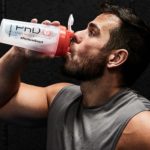Home » How to Choose the Best Supplement Brand

CONTENTS
- Best Supplement Brand – Key Factors
- Common Health Goals for Supplements
- Are You Deficient in a Nutrient?
- Check for Third-Party Testing
- Best Third-Party Testing Organizations
- What Should I Do If a Product Isn’t Certified?
- Some Best Sports Nutrition Brands
- The Right Protein Powder
- Budget-Friendly Sports Nutrition Options
- Easy DIY Snack Recipes
- Choosing the Best Supplement Brands – Summary
Best Supplement Brand – Key Factors
Choosing the best supplement brand can be a bit overwhelming given the many options available. Here are some key factors to consider to help you make an informed decision:
1. Identify Your Health Goals
Determine what you want to achieve with supplements. Are you looking to boost energy, build muscle, lose weight, or improve overall health? Your specific goals will guide you towards the right type of supplements.
2. Research and Evaluation
- Quality and Testing: Look for brands that undergo third-party testing to ensure the quality and purity of their products. Certifications from organizations like NSF International or USP can be good indicators of quality.
- Ingredient Transparency: Choose brands that list all ingredients and their dosages. Avoid proprietary blends that do not disclose specific amounts of each ingredient.
- Customer Reviews and Feedback: Read reviews from other users to get an idea of the product’s effectiveness and any potential side effects.
3. Consult with a Healthcare Professional
Before starting any new supplement, it’s a good idea to talk to your doctor, pharmacist, or a registered dietitian. They can help you understand if you need a supplement and which one might be best for your health needs.
4. Consider the Form of the Supplement
Supplements come in various forms, including pills, powders, liquids, and gummies. Choose a form that you find easy to take and that fits your lifestyle.
5. Check for Allergens and Sensitivities
Ensure the supplement contains no ingredients you are allergic to or sensitive to. Some supplements may contain common allergens like soy, gluten, or dairy.
6. Price and Value
While price is an important factor, it shouldn’t be the only consideration. Sometimes, higher-priced supplements offer better quality and more effective ingredients. Compare the cost per serving to determine the best value.
7. Brand Reputation
Choose brands with a good reputation in the industry. Established brands with positive reviews and a history of quality products are generally a safer bet.
8. Personalization and Customization
Some brands offer personalized supplements based on your specific health needs and goals. This can be a great option if you have unique dietary requirements or health conditions.
By considering these factors, you can make a more informed decision and choose a supplement brand that aligns with your health goals and needs. If you have any specific questions or need further guidance, feel free to ask!
Common Health Goals for Supplements
People take supplements for a variety of health goals. Here are some of the most common ones:
- Nutrient Deficiency: Supplements can help address deficiencies in vitamins and minerals, such as vitamin D, iron, or calcium.
- General Health and Wellness: Many people take multivitamins or specific supplements, such as omega-3 fatty acids, to support overall health and well-being.
- Immune Support: Supplements like vitamin C, zinc, and elderberry are popular for boosting the immune system.
- Bone and Joint Health: Calcium, vitamin D, and glucosamine are commonly used to support bone density and joint health.
- Heart Health: Omega-3 fatty acids, CoQ10, and magnesium are often taken to support cardiovascular health.
- Energy and Metabolism: B vitamins, iron, and certain herbal supplements, like ginseng, enhance energy levels and support metabolic functions.
- Digestive Health: Probiotics and fiber supplements are popular for maintaining a healthy digestive system.
- Weight Management: Supplements like green tea extract, CLA, and protein powders are used to support weight loss and muscle building.
- Mental Health and Cognitive Function: Supplements such as omega-3s, ginkgo biloba, and certain nootropics are taken to support brain health and cognitive function.
- Skin, Hair, and Nails: Biotin, collagen, and vitamins A, C, and E are often used to promote healthy skin, hair, and nails.

These goals can guide you in selecting the best supplement brand for your specific needs.
Are You Deficient in a Nutrient?
Identifying a nutrient deficiency can sometimes be challenging, but there are several signs and methods to help you determine if you might be lacking in certain vitamins or minerals:
- Common Symptoms: Look out for symptoms such as fatigue, weakness, brittle hair and nails, mouth ulcers, bleeding gums, vision problems, and bone pain. These can be indicators of deficiencies in various nutrients like iron, vitamin D, vitamin B12, and calcium.
- Dietary Assessment: Evaluate your diet to see if you’re consuming a balanced variety of foods. A diet lacking in fruits, vegetables, whole grains, and lean proteins can lead to deficiencies.
- Medical History and Physical Examination: A healthcare provider can review your medical history and perform a physical examination to identify signs of nutrient deficiencies.
- Blood Tests: The most accurate way to diagnose a nutrient deficiency is through blood tests. These tests can measure levels of specific vitamins and minerals in your blood.
- Consult a Professional: If you suspect a deficiency, it’s best to consult with a healthcare provider. They can recommend appropriate tests and guide dietary changes or supplements.
By paying attention to these signs and seeking professional advice, you can effectively address any nutrient deficiencies.
Check for Third-Party Testing
Checking for third-party testing of supplements is a great way to ensure their quality and safety. Here are some steps to help you verify this:
- Look for Certification Seals: Check the product label for certification seals from reputable third-party organizations like NSF International, USP, or ConsumerLab. These seals indicate that the product has been tested for quality and purity.
- Certificate of Analysis (COA): Some brands provide a Certificate of Analysis (COA) for their products. This document details the results of the third-party testing and can often be found on the brand’s website or by contacting the manufacturer directly.
- Brand Transparency: Visit the brand’s website to see if they mention third-party testing. Reputable brands will often highlight their testing processes and the labs they use.
- Research the Testing Lab: Ensure the third-party lab is reputable. Labs like NSF, USP, and ConsumerLab are well-known for their rigorous testing standards.
- Consult Reviews and Forums: Sometimes, customer reviews and health forums can provide insights into whether a brand’s claims about third-party testing are trustworthy.
To sum up, by following these steps, you can make a more informed decision about the supplements you choose.
Best Third-Party Testing Organizations
Some of the most reputable third-party testing organizations for supplements include:
- NSF International: Known for its rigorous testing standards, NSF International certifies that supplements contain the ingredients listed on the label and are free from harmful contaminants.
- U.S. Pharmacopeia (USP): USP sets widely accepted standards for the quality, purity, and potency of supplements. Products with the USP Verified mark have been tested and meet these high standards.
- ConsumerLab: This organization independently tests supplements for quality, including verifying that the product contains the ingredients listed on the label and checking for contaminants.

These organizations help ensure that the supplements you choose are safe and effective.
What Should I Do If a Product Isn’t Certified?
If a supplement product isn’t certified by a reputable third-party organization, here are some steps you can take to ensure its quality and safety:
- Research the Brand: Look into the brand’s reputation. Check for customer reviews, any history of recalls, and the company’s transparency about their manufacturing processes.
- Check for GMP Compliance: Ensure the product is manufactured in a facility that follows Good Manufacturing Practices (GMP). This indicates that the facility adheres to high standards for cleanliness, quality control, and record-keeping.
- Request a Certificate of Analysis (COA): Contact the manufacturer and ask for a Certificate of Analysis. This document should detail the results of any testing done on the product, including checks for contaminants and verification of ingredient amounts.
- Consult a Professional: Speak with a healthcare provider or a nutritionist. They can provide guidance based on your specific health needs and help you determine if the product is suitable for you.
- Look for Transparency: Choose brands that are transparent about their ingredient sourcing, manufacturing processes, and testing protocols. Brands that openly share this information are often more trustworthy.
By taking these steps, you can make a more informed decision about whether to use a supplement that isn’t certified and which brand is best supplement brand for your needs.
Some Best Sports Nutrition Brands
Here are some of the top sports nutrition brands known for their quality and effectiveness:
- Optimum Nutrition: Renowned for their Gold Standard Whey Protein, Optimum Nutrition offers a wide range of products that are popular among athletes and fitness enthusiasts.
- BSN (Bio-Engineered Supplements and Nutrition): Known for their pre-workout supplements like N.O.-Xplode, BSN provides a variety of products designed to enhance performance and recovery.
- MuscleTech: This brand is well-regarded for its research-backed products, including the popular Nitro-Tech protein powders.
- Quest Nutrition: Famous for their protein bars, Quest Nutrition also offers protein powders and other supplements that are both tasty and effective.
- Vega: A leader in plant-based nutrition, Vega offers a range of vegan protein powders and supplements that cater to those looking for plant-based options.
- NOW Sports: Known for their high-quality, affordable supplements, NOW Sports offers a wide range of products that are third-party tested for purity and potency.
- GNC (General Nutrition Centers): GNC provides a broad selection of sports nutrition products, including their own brand and other top brands.
- MusclePharm: This brand offers a variety of supplements designed to support muscle growth, recovery, and overall performance.

These brands are highly regarded in the sports nutrition industry and are a good starting point if you’re looking to enhance your workout and recovery.
The Right Protein Powder
Choosing the right protein powder can depend on several factors, including your dietary preferences, fitness goals, and any specific health considerations. Here’s a guide to help you make an informed decision:
- Determine Your Goals:
- Muscle Gain: Look for protein powders with a high biological value, such as whey protein, which is quickly absorbed and contains all essential amino acids.
- Weight Loss: Choose protein powders with no added sugars or artificial sweeteners. Opt for those with fewer calories and higher protein content per serving.
- General Health: A balanced protein powder with a mix of protein sources can be beneficial for overall health and wellness.
- Consider Dietary Restrictions:
- Lactose Intolerance: Opt for lactose-free options like plant-based proteins (pea, hemp, or rice protein) or whey protein isolate, which has minimal lactose.
- Vegan or Vegetarian: Choose plant-based proteins such as pea, hemp, or soy protein.
- Check the Ingredients:
- Minimal Additives: Look for protein powders with minimal ingredients and no artificial additives. The fewer the ingredients, the better.
- Complete Amino Acid Profile: Ensure the protein powder contains all essential amino acids, especially if you’re using it for muscle recovery and growth.
- Digestibility:
- Ease of Digestion: Some protein powders can cause digestive issues. If you have a sensitive stomach, look for hydrolyzed proteins or those specifically labeled as easy to digest.
- Third-Party Testing:
- Quality Assurance: Choose brands that have been tested by third-party organizations like NSF International, USP, or Informed-Sport to ensure quality and safety.
- Taste and Mixability:
- Flavor Preferences: Since you’ll be consuming it regularly, choose a flavor you enjoy. Also, consider how well it mixes with liquids to avoid clumps.
By considering these factors, you can find a protein powder that best suits your needs and preferences.
Budget-Friendly Sports Nutrition Options
There are several budget-friendly sports nutrition options that can help you meet your fitness goals without breaking the bank. Here are some tips and affordable options:
- Whole Foods: Incorporate nutrient-dense whole foods like eggs, beans, lentils, tofu, and cottage cheese. These are excellent sources of protein and other essential nutrients.
- Bulk Buying: Purchase items like oats, rice, and nuts in bulk. This can significantly reduce the cost per serving and ensure you have a steady supply of healthy carbs and fats.
- DIY Snacks: Make your own energy bars or protein balls using ingredients like oats, peanut butter, and honey. This can be more cost-effective than buying pre-packaged snacks.
- Seasonal Produce: Opt for fruits and vegetables that are in season. They are usually cheaper and fresher. Bananas and oranges are great for quick, affordable snacks.
- Affordable Supplements: Brands like NOW Sports and Optimum Nutrition offer high-quality, affordable supplements. Look for sales or discounts online or at local stores.
- Hydration: Instead of buying expensive sports drinks, you can make your own by mixing water with a pinch of salt and a splash of fruit juice for flavor and electrolytes.
By focusing on these budget-friendly options, you can maintain a nutritious diet that supports your athletic performance without spending too much.
Easy DIY Snack Recipes
Here are a few easy and delicious DIY snack recipes you can try at home:
- Energy Balls:
- Ingredients: 1 cup oats, 1/2 cup peanut butter, 1/3 cup honey, 1/2 cup chocolate chips, 1/4 cup flax seeds.
- Instructions: Mix all ingredients in a bowl, roll into balls, and refrigerate for at least 30 minutes.
- Homemade Granola Bars:
- Ingredients: 2 cups oats, 1 cup mixed nuts, 1/2 cup honey, 1/2 cup peanut butter, 1/2 cup dried fruit.
- Instructions: Mix oats and nuts, heat honey and peanut butter until smooth, combine all ingredients, press into a baking dish, and refrigerate until firm. Cut into bars.
- Veggie Chips:
- Ingredients: Kale, sweet potatoes, or zucchini, olive oil, salt.
- Instructions: Slice veggies thinly, toss with olive oil and salt, bake at 350°F (175°C) for 10-15 minutes until crispy.
- Yogurt Parfait:
- Ingredients: Greek yogurt, honey, granola, fresh berries.
- Instructions: Layer yogurt, honey, granola, and berries in a glass or bowl.
- Peanut Butter Apple Slices:
- Ingredients: Apples, peanut butter, granola, raisins.
- Instructions: Slice apples, spread peanut butter on each slice, sprinkle with granola and raisins.

These snacks are quick to make and perfect for satisfying your hunger between meals.
Choosing the Best Supplement Brands – Summary
Here’s a summary of the steps to choose the best supplement brand, along with the benefits of following these steps:
Key Steps
- Identify Your Needs: Determine what you need the supplement for—general health, specific deficiencies, or performance enhancement. This helps narrow down your options and ensures you choose a product that meets your specific health goals.
- Research and Quality: Look for brands that have been tested by reputable third-party organizations like NSF International, USP, or ConsumerLab. These certifications indicate that the product meets high standards for quality and safety, reducing the risk of contaminants and ensuring the supplement contains what it claims.
- Ingredient Transparency: Choose brands that are transparent about their ingredients and dosages. Avoid proprietary blends that don’t specify the amounts of each ingredient. This transparency helps you understand exactly what you’re consuming and ensures you’re getting the right dosages.
- Reputation and Reviews: Check customer reviews and feedback. Reputable brands often have positive reviews and a good track record. This can give you confidence in the product’s effectiveness and safety.
- Consult a Professional: If you’re unsure, consulting with a healthcare provider or a nutritionist can provide personalized advice based on your health needs. This ensures that the supplements you choose are appropriate for your specific health conditions and goals.
- Price and Value: While price is important, it shouldn’t be the only factor. Sometimes, paying a bit more for a high-quality product is worth it. This ensures you’re investing in a product that is effective and safe.
Benefits
- Personalized Health Support: By identifying your specific needs, you can choose supplements that directly address your health goals.
- Safety and Efficacy: Researching and choosing high-quality, third-party tested brands ensures that the supplements are safe and effective.
- Transparency and Trust: Selecting brands that are transparent about their ingredients builds trust and helps you make informed decisions.
- Professional Guidance: Consulting with healthcare professionals provides tailored advice, enhancing the effectiveness of your supplement regimen.
- Value for Money: Considering price and value helps you invest in supplements that offer the best benefits for your health without unnecessary costs.
By following these steps, you can make a well-informed decision about which brand is best supplement brand for you.

Mr. Healthy & Ms. Exercise
Mr. Healthy & Ms. Exercise aggregates the best health and fitness websites for excellent training, supplements, food tips, and health & lifestyle improvement. To see and visit any of the websites, check out this page. Six Pack Saturday lists bring tips & tricks about health, fitness, and diet. Or check out the Tumblr archive or Pinterest Boards. Let us know your feedback on the post How to Choose the Right Supplement Brand, thank you! ❤️
Monday Morning F45 Challenge →
Tags: Best Supplements





Recent Comments